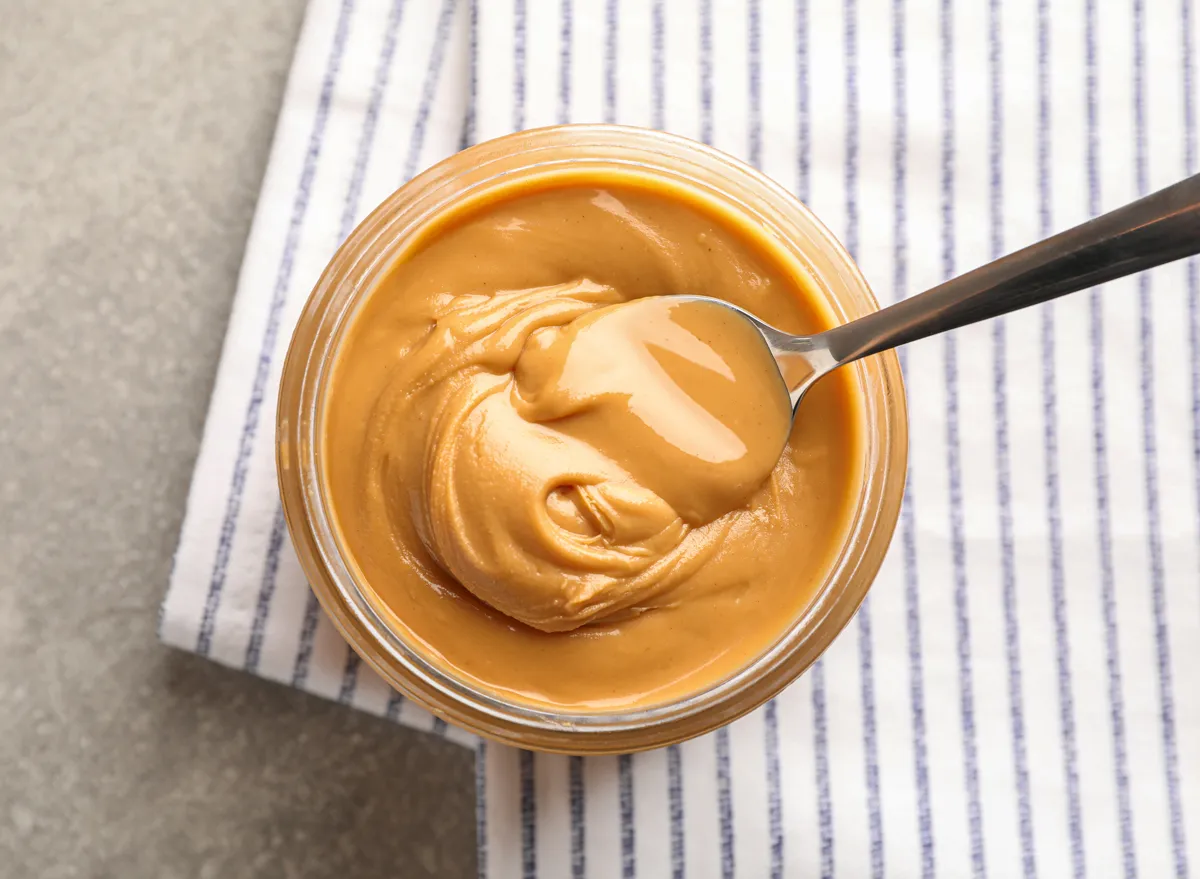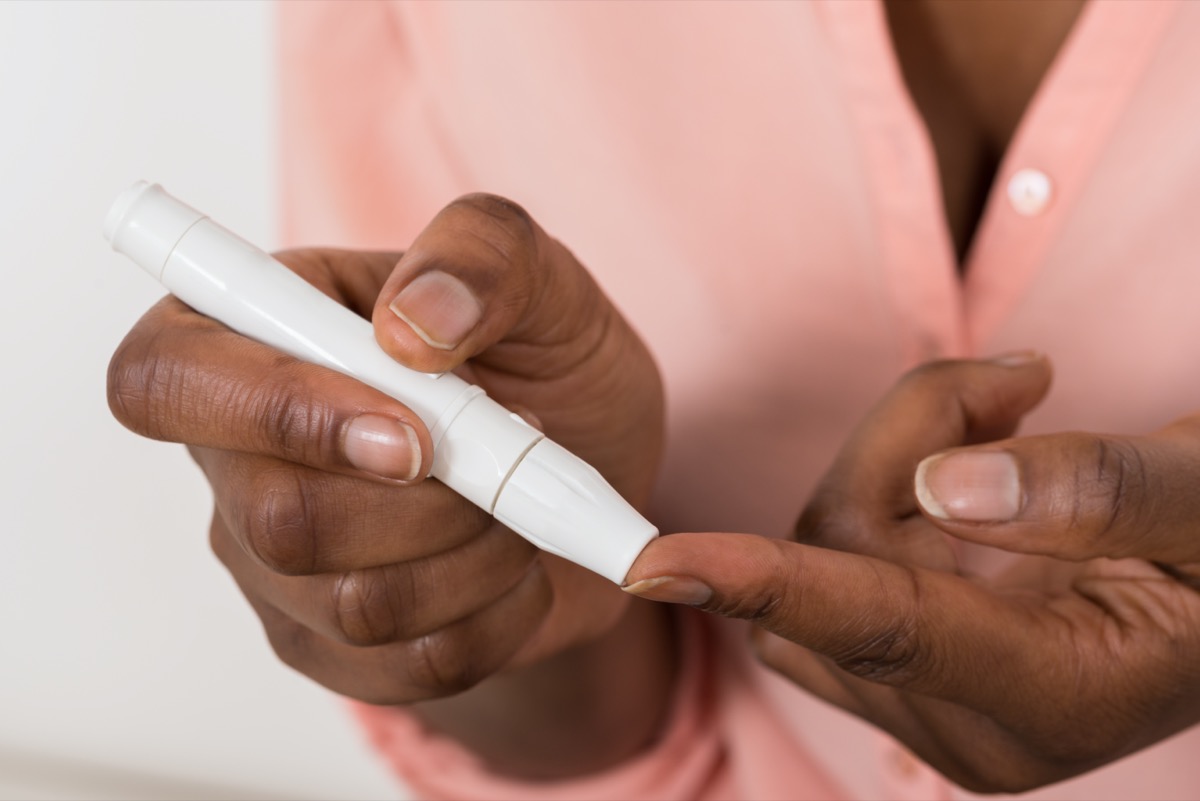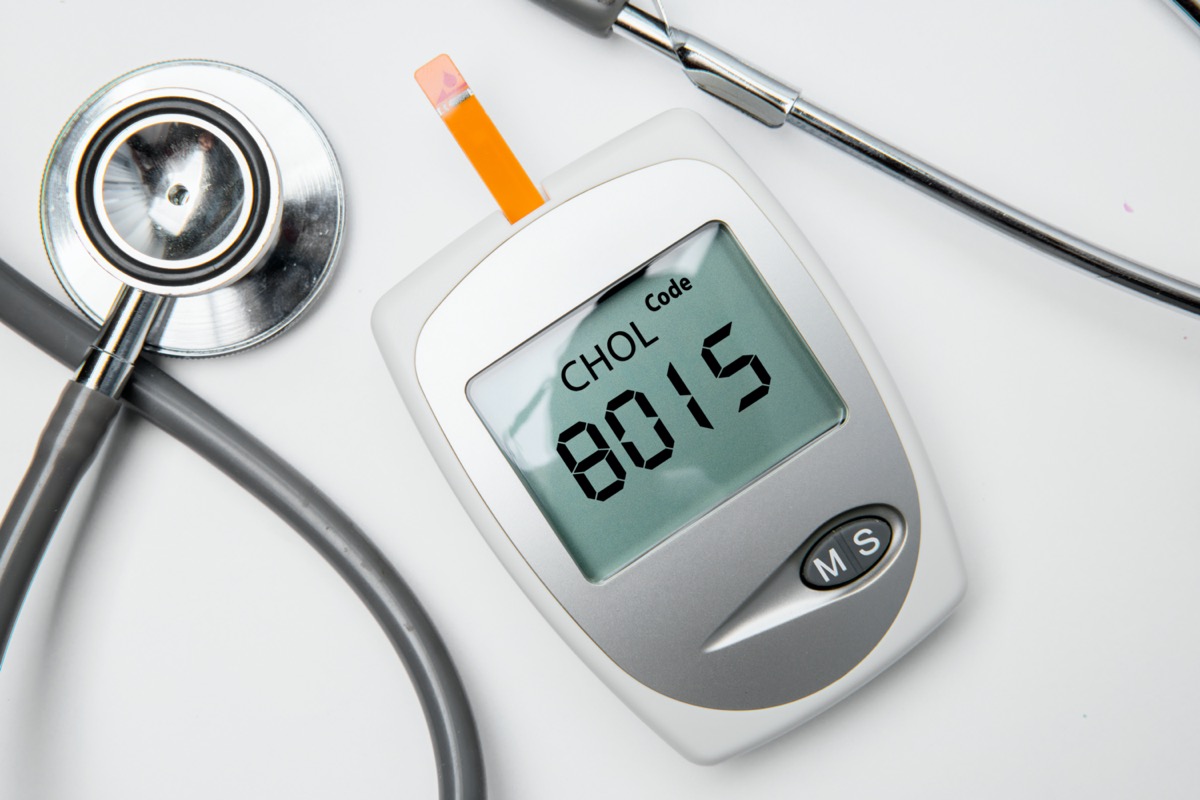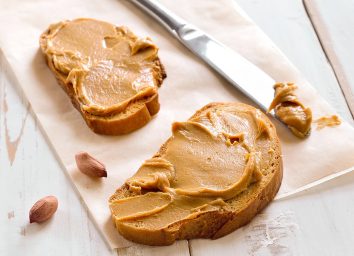Surprising Side Effects of Not Eating Peanut Butter, Says Science

Whether you're spreading it on toast or adding a spoonful to your favorite smoothie, eating peanut butter is part of many people's daily routine. However, with a high-calorie count and, in many cases, large helpings of sodium, sugar, and saturated fat, it may be tempting to cut this spreadable staple from your diet entirely. (Related: One Major Side Effect of Eating Too Much Peanut Butter.)
Before you bid the peanut butter aisle adieu one last time, read on to discover the eye-opening side effects of giving up peanut butter, according to science. And for some foods you definitely should snag on your next shopping trip, check out the 6 Best Groceries To Buy At Walmart Right Now.
You may increase your diabetes risk.

If you have a family history of diabetes or have other risk factors for the condition, you may want to think twice before cutting peanut butter from your meal plan.
According to a 2002 study published in JAMA, among 121,700 women studied as part of the Nurses' Health Study, women who consumed peanut butter on a regular basis had a lower risk of developing type 2 diabetes than those who said they never or almost never ate nuts.
You may increase your risk of heart health issues.

Keeping your heart healthy could be as simple as keeping peanut butter on your menu.
A study published in The BMJ, which observed 86,016 women between 34 and 59 years old who took part in the Nurses' Health Study, found that frequent consumption of nuts was linked to lower rates of non-fatal heart attacks and fatal coronary heart disease.
However, since both sugar and sodium have been linked to an increased risk of cardiovascular issues, it's important to make sure that the peanut butter you choose to eat has as few extra ingredients as possible. And for more insight into how peanut butter could be affecting your wellbeing, discover What Happens To Your Body If You Eat Peanut Butter Every Day.
You may consume fewer calories overall.

If you're a regular consumer of peanut butter, cutting this high-calorie staple from your diet could mean a major reduction in total calories. Research published in the Journal of Nutrition found that, among women with type 2 diabetes, those who consumed more nuts and peanut butter were leaner and more physically active than those who consumed lower quantities. However, women who consumed at least five servings of nuts or peanut butter a week had higher overall caloric intakes, as well.
You may have higher cholesterol.

Getting your cholesterol into healthier territory doesn't have to mean cutting out rich foods like peanut butter. According to the aforementioned Journal of Nutrition study, women who consumed five or more servings of nuts and peanut butter on a weekly basis had notably lower LDL or "bad" cholesterol and lower total cholesterol than those who consumed fewer servings of nuts and nut products. In other words: if you give up peanut butter, you may miss out on its cholesterol-lowering properties.
If you want to get your cholesterol numbers into healthier territory, start with these 17 Foods That Lower Cholesterol.
You may not sleep as well.

If you want to enjoy a restful, restorative sleep night after night, cutting peanut butter from your diet may not be a smart move. A 2017 study published in the FASEB Journal found that, out of multiple nuts and legumes studied, consumption of peanuts had the most pronounced effect on subjects' delta wave response, which is linked to healing and deep sleep.
If you want to improve your sleep, check out these 7 Healthy Diet Changes That Help You Sleep, and for the latest food and health news delivered to your inbox, sign up for our newsletter!








